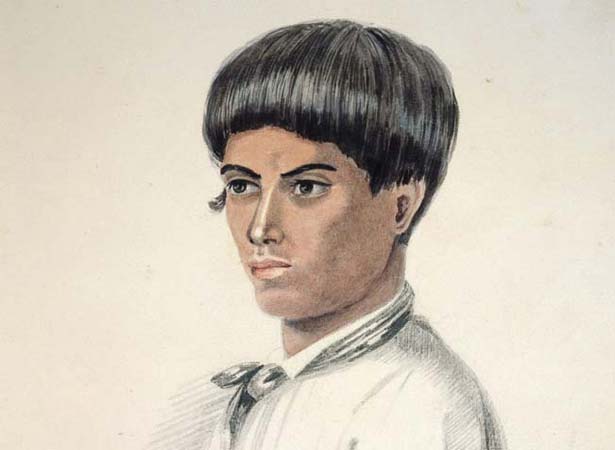
Maketū Wharetōtara, the 17-year-old son of the Ngāpuhi chief Ruhe of Waimate, was the first person to be legally executed in New Zealand.
In November 1841 he had killed five people at Motuarohia in the Bay of Islands: farm worker Thomas Bull, Elizabeth Roberton and her two children, and Isabella Brind, the granddaughter of the Ngāpuhi leader Rewa.
Maketū had worked with Bull on a farm owned by Roberton, who was a widow. He killed them because he believed they had offended his mana. Bull had been verbally and physically abusive towards Maketū, and Roberton had sworn at him. Maketū did not explain why he killed Roberton’s two children and Isabella. It was perhaps this last killing that sealed his fate.
Maketū sought refuge in his father’s village, while local settlers feared that the killings signalled the start of something bigger. The police magistrate at Russell, Thomas Beckham, refused to act for fear of provoking relatives of Maketū. To avoid a possible war with Rewa, Ruhe surrendered his son. With the exception of Hōne Heke, Ngāpuhi leaders distanced themselves from Maketū, perhaps fearing a wider response from the Pākehā authorities. The government at Auckland was asked to prevent Maketū from returning to the north.
Beckham’s initial reaction exemplified the feeling of many Europeans that, as they were in the minority, they should tread carefully in imposing British authority on Māori. The case was hailed by some European observers as a significant turning point − a triumph of British law and order and an acceptance by Māori of British jurisdiction in affairs involving both races. Ruhe would not have seen his actions in this light.
Maketū was hanged in public, at the corner of Queen and Victoria streets in Auckland.
Read more on NZHistory
The first execution – The death penaltyNew Zealand crime timeline – Crime timeline
External links
How to cite this page
'New Zealand's first official execution', URL: https://nzhistory.govt.nz/first-official-execution-in-new-zealand, (Ministry for Culture and Heritage), updated 16-Feb-2023
